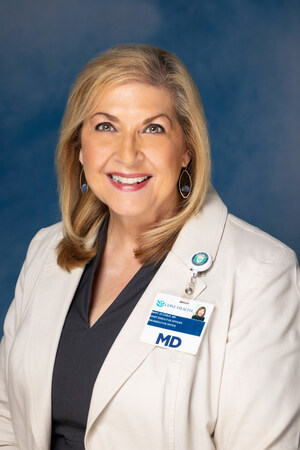Use of Health Information Technology Leads to Improved Care Quality
Kaiser Permanente Study Finds Quality of Care Scores Increase as Patients and Physicians Communicate via Secure E-mail
OAKLAND, Calif., July 7 /PRNewswire/ -- Secure patient-physician e-mail messaging improves the effectiveness of care for patients with diabetes and hypertension, according to new research by Kaiser Permanente. The study, published in the July issue of Health Affairs, shows that health information technology improves quality of care scores.
The study observed 35,423 patients with diabetes, hypertension, or both, in Kaiser Permanente's Southern California region, finding that use of secure patient-physician messaging in any two-month period was associated with statistically significant improvements in HEDIS (Healthcare Effectiveness Data and Information Set) care measurements. Results included 2.0 percentage-points to 6.5 percentage- points improvements in glycemic, cholesterol and blood pressure screening and control.
"Putting patients and their data at the center of care allows Kaiser Permanente to improve health care quality, access and cost," said George Halvorson, chairman and CEO, Kaiser Permanente. "This data proves that health IT can be a fundamental component of accomplishing those three critical goals."
More than 556,000 secure patient-physician e-mail threads, containing more than 630,000 messages, were logged throughout the study. Patients initiated 85 percent of those threads, which shows that health IT is empowering patients to better manage their health care. Kaiser Permanente's secure e-mail tool, called "E-mail my doctor," is one of the most popular features of the My Health Manager (www.kp.org/myhealthmanager) comprehensive personal health record. My Health Manager, used by more than 3 million Kaiser Permanente members, provides patients with secure and timely access to lab test results, medication information and refill capabilities, summaries of their health conditions, appointment scheduling, and other important health information with just the click of a mouse.
Kaiser Permanente previously found that 75 percent of all patient-physician e-mail encounters addressed ongoing medical problems or care plans. The leading reasons patients contact physicians are to discuss changes in a health condition, lab test results, a new condition, drug dosage adjustments, or the need for a new prescription. Other research (Dr. Yi Yvonne Zhou et al, American Journal of Managed Care, 2007) found that patients who use secure e-mail were 7 percent to 10 percent less likely to schedule an office visit, and 14 percent less likely to contact their physician by phone compared to those not using online services.
This study is one of the first to show that these electronic communications have a measurable positive effect on patient outcomes, in addition to improving efficiency. Kaiser Permanente physicians participating in the study reported that the use of secure e-mail messaging has been highly successful for diabetes patients, enabling them to follow medical instructions to the letter. Physicians also are encouraging patients to schedule an appointment if they raise issues via e-mail that are too complex or lengthy to address using that medium.
"Kaiser Permanente members using My Health Manager send more than 870,000 secure messages to their clinicians each month," said Terhilda Garrido, co-author of the study and vice president, health information technology transformation and analytics, Kaiser Permanente. "Physicians are using the tool to connect with their patients like never before, sending nearly 3.5 million messages to patients between January and April this year, and empowering them to take better care of themselves and manage their total health."
"There are a lot of reasons that patients contact their care teams. It is important to keep the lines of communication open, while not inconveniencing patients by playing phone tag or bringing them into the office unnecessarily," said Michael Kanter, MD, co-author of the study and regional medical director of quality and clinical analysis, Southern California Permanente Medical Group. "We have always felt that use of secure e-mail messaging is a huge patient satisfier and an efficient way of handling many routine care issues. Now, with this study, we can also state that secure e-mail improves clinical outcomes for patients."
This study was authored by Dr. Yi Yvonne Zhou, senior manager of health information technology transformation and analytics, Kaiser Permanente, Portland, Ore.; Michael H. Kanter, MD, regional medical director of quality and clinical analysis, Southern California Permanente Medical Group; Jian J. Wang, statistical consultant in health information technology transformation and analytics, Kaiser Permanente, Portland, Ore.; and Terhilda Garrido, vice president of health information technology transformation and analytics, Kaiser Permanente.
Kaiser Permanente has a 50-year history of leadership in health IT, operating the world's largest private electronic health record, Kaiser Permanente HealthConnect®. Recognizing that health information technology is critical to clinical performance improvement, including patient safety, Kaiser Permanente began the implementation of KP HealthConnect in 2004 to support patient care and service, a process completed in March 2010. The health care provider completed the implementation of the My Health Manager personal health record in 2007.
To see Kaiser Permanente members, physicians and employees talk about KP HealthConnect, go to http://www.youtube.com/kaiserpermanenteorg.
About Kaiser Permanente
Kaiser Permanente is committed to helping shape the future of health care. We are recognized as one of America's leading health care providers and not-for-profit health plans. Founded in 1945, our mission is to provide high-quality, affordable health care services and to improve the health of our members and the communities we serve. We currently serve 8.6 million members in nine states and the District of Columbia. Care for members and patients is focused on their total health and guided by their personal physicians, specialists and team of caregivers. Our expert and caring medical teams are empowered and supported by industry-leading technology advances and tools for health promotion, disease prevention, state-of-the art care delivery and world-class chronic disease management. Kaiser Permanente is dedicated to care innovations, clinical research, health education and the support of community health. For more information, go to: www.kp.org/newscenter.
SOURCE Kaiser Permanente
WANT YOUR COMPANY'S NEWS FEATURED ON PRNEWSWIRE.COM?
Newsrooms &
Influencers
Digital Media
Outlets
Journalists
Opted In






Share this article